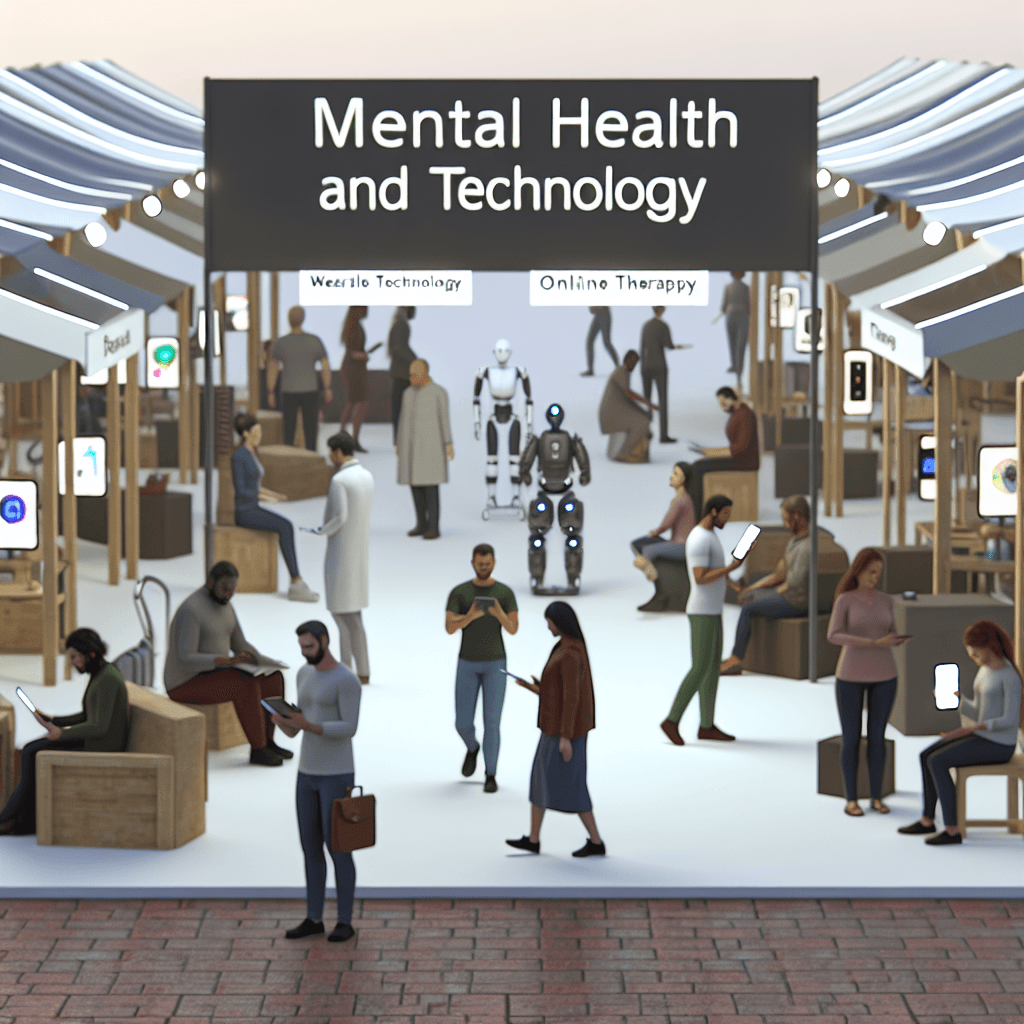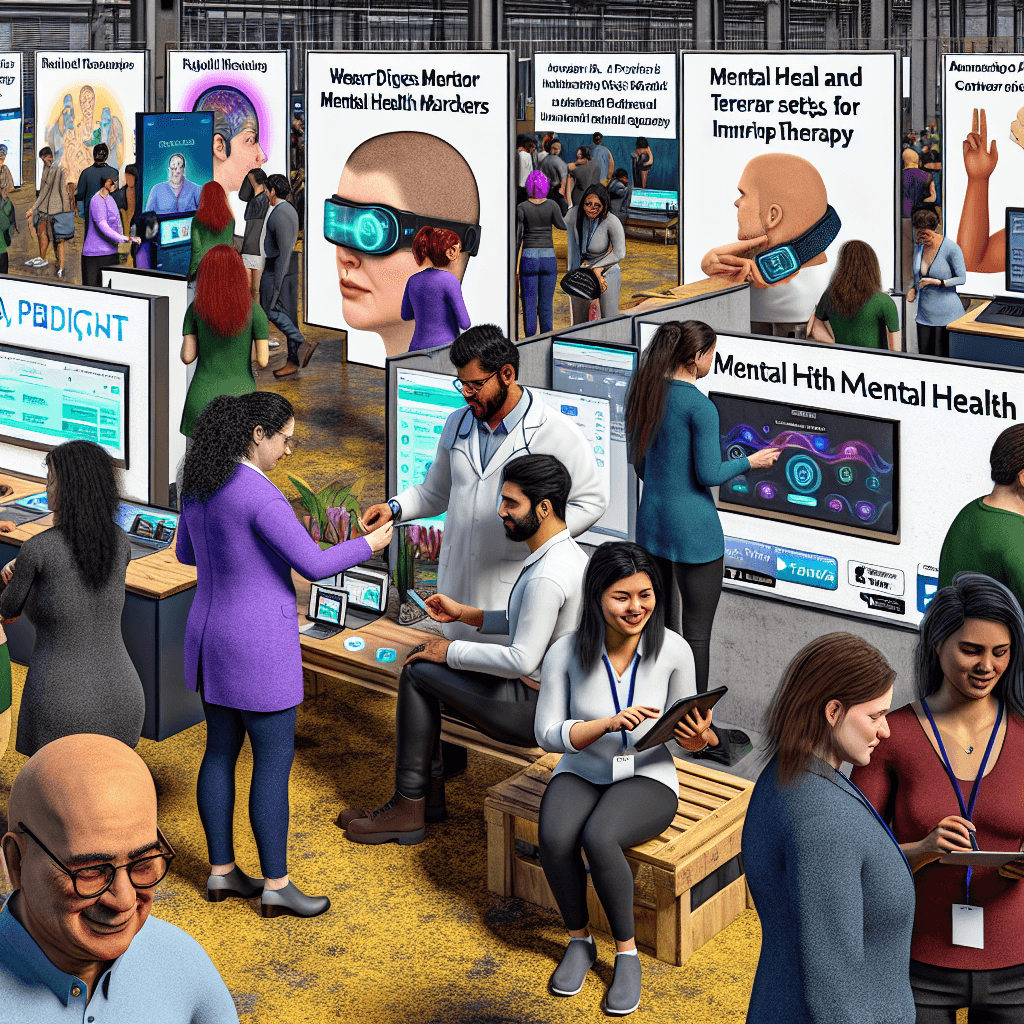Explore the growing mental health technology market, focusing on innovations and solutions enhancing mental wellness and healthcare efficiency.
Mental Health Technology Market

Table of Contents
- Mental Health Technology Market: Innovations and Impact
- Understanding the Mental Health Technology Market
- Key Drivers of Growth in the Mental Health Technology Market
- Major Technologies Transforming Mental Health Care
- Telepsychiatry
- Mobile Health Apps
- Artificial Intelligence in Mental Health
- Virtual Reality Treatments
- Case Studies and Success Stories
- Challenges and Considerations
- Future Outlook
- Conclusion
Mental Health Technology Market: Innovations and Impact

The mental health technology market is rapidly evolving, driven by increasing awareness of mental health issues and technological advancements. This sector is becoming crucial in addressing the wide gap in mental health services, providing scalable and efficient solutions that were unimaginable a few decades ago. This article explores the current landscape, key players, and future trends in the mental health technology market, providing insights into how these innovations are transforming the mental health care system.
Understanding the Mental Health Technology Market
The mental health technology market encompasses a wide range of products and services designed to improve mental health care delivery and patient outcomes. These technologies include telepsychiatry, mobile health applications, artificial intelligence (AI) systems, virtual reality (VR) treatments, and electronic health records (EHRs) tailored for mental health care.
These technologies aim to make mental health care more accessible, reduce the stigma associated with seeking help, and provide new ways for patients to manage their conditions. Innovations in this field are particularly important as the global burden of mental health disorders continues to grow, exacerbated by factors like the COVID-19 pandemic and economic stresses.
Key Drivers of Growth in the Mental Health Technology Market
- Increasing Prevalence of Mental Health Disorders: The rising number of people suffering from mental health issues globally fuels the demand for effective and accessible treatment options.
- Technological Advancements: Breakthroughs in AI, machine learning, and data analytics are enhancing the capabilities of mental health technologies.
- Government and Insurance Support: Growing recognition of mental health issues by governments and insurance companies is leading to better funding and reimbursement policies for technology-based treatments.
- Consumer Acceptance: There is a growing acceptance and preference for digital health solutions among patients, particularly the younger generation.
Major Technologies Transforming Mental Health Care
Telepsychiatry
Telepsychiatry has become a cornerstone of modern mental health care, particularly highlighted during the COVID-19 pandemic when traditional face-to-face consultations were not possible. It involves the delivery of psychiatric assessment and care through telecommunications technology, typically video conferencing. Telepsychiatry expands access to care, especially for individuals in remote areas or those with mobility limitations.
Mobile Health Apps
There is a plethora of mobile applications aimed at improving mental health. These apps offer various services, from mood tracking and meditation to cognitive behavioral therapy (CBT) exercises. Apps like Headspace and Calm have become immensely popular, helping millions of users manage stress, anxiety, and sleep issues.
Artificial Intelligence in Mental Health
AI is playing a transformative role in the mental health domain. AI-powered tools can analyze data from various sources to predict depressive episodes or potential self-harm risks. Companies like Mindstrong and Woebot are leveraging AI to provide real-time monitoring and therapeutic conversations, respectively.
Virtual Reality Treatments
VR is emerging as a powerful tool in treating conditions like PTSD, anxiety, and phobias. By immersing patients in controlled and customizable environments, VR therapies help patients face their fears and practice coping strategies in a safe space. Programs like Oxford VR are leading the way in clinically validated VR mental health therapies.
Case Studies and Success Stories
Several case studies highlight the effectiveness and potential of mental health technologies:
- Big White Wall: A digital mental health support service that offers anonymous support through trained professionals. It has shown significant effectiveness in helping individuals with depression and anxiety.
- Talkspace: An online therapy platform that has successfully provided accessible psychotherapy to thousands of users worldwide, demonstrating high satisfaction and improvement in mental health outcomes.
Challenges and Considerations
Despite the promising growth and innovations, the mental health technology market faces several challenges:
- Data Privacy and Security: Handling sensitive personal information requires robust security measures to protect patient data and maintain trust.
- Regulatory Compliance: Navigating the complex regulatory landscape of health care is crucial for market entry and expansion.
- Evidence of Efficacy: Demonstrating the clinical effectiveness of new technologies is essential to gain acceptance from the medical community and patients.
- Accessibility Issues: There is a need to ensure these technologies are accessible to those who lack digital literacy or access to the necessary hardware.
Future Outlook
The future of the mental health technology market looks promising with continuous advancements in technology and an increasing focus on personalized medicine. Integration of AI and genomics in mental health care, expansion of telepsychiatry, and more immersive VR therapies are likely to dominate the future landscape.
Conclusion
The mental health technology market is set to transform the landscape of mental health care. With its ability to increase accessibility, reduce costs, and personalize treatment, technology holds the key to addressing many of the current challenges in mental health care. As the market continues to evolve, it promises not only to enhance patient care but also to offer exciting opportunities for investors and innovators in the health tech space.








